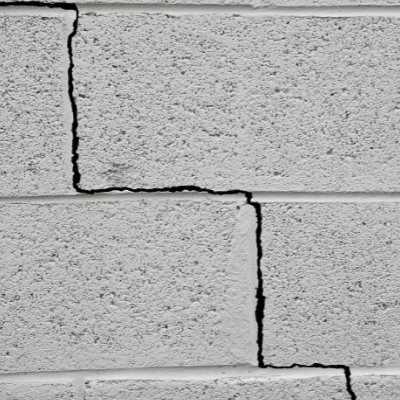Most homeowners spot foundation problems during the day, but some warning signs seem louder, clearer, or more obvious at night. When the house quiets down, small foundation issues can make themselves known in surprising ways. If you’ve ever laid awake wondering why your floors creak or you hear faint pops in the walls, you might not be imagining it.
Below are some reasons nighttime makes certain symptoms easier to notice and what they could mean for your home.
Why Foundation Symptoms Stand Out More at Night
There are a few simple reasons problems reveal themselves after the sun goes down:
- Homes cool and contract at night, especially during temperature swings.
- You’re not listening to appliances, traffic, or daytime noise.
- Moisture in basements and crawl spaces can be more noticeable in cooler air.
- Structural movement can be easier to feel when the house is still.
The result is a home that suddenly feels more active, even though you’re trying to sleep.
Noises You Hear That Might Signal Foundation Trouble
You might hear sounds that are easy to dismiss, but some of them point to structural movement:
Popping or cracking sounds
Wood framing can shift if the foundation settles. These sounds can come from walls, floor joists, or support beams adjusting to uneven pressure.
Creaking floors
If parts of your home dip or slope, your flooring may rub against subflooring or framing, leading to nighttime noise.
Running water sounds
If water is entering through foundation cracks, you might hear trickling or dripping in a basement or crawl space.
Moisture Issues You Notice More After Dark
Humidity often rises in lower levels of a home at night. You may notice:
- A musty smell that seems stronger than during the day
- Condensation on basement walls or pipes
- Damp carpet or cool, clammy basement air
- A dehumidifier running constantly overnight
These symptoms often point to improper drainage, cracks, or rising groundwater—common causes of long-term foundation trouble.

Nighttime Visual Changes (Yes, It Happens)
Foundation movement can create subtle changes that stand out more when lighting or shadows change. You may notice:
- Shadowed gaps around doors or trim
- New light leaking around basement windows
- Cracks that seem longer or more defined at night
Sometimes the cracks don’t actually grow that fast, but their appearance changes in low light.
When Nighttime Signs Mean It’s Time to Call a Pro
You should consider a foundation evaluation if you notice any of the following repeatedly:
✔ Cracking sounds paired with visible wall or floor cracks
✔ Doors and windows that become harder to open, especially after dark and early morning
✔ Humidity or musty smells that get worse at night
✔ Floors that feel uneven or bouncy when the house is quiet
✔ Water sounds with no obvious plumbing cause
Foundation issues rarely get better on their own, and early repair is almost always more cost-effective.
What You Can Do Next
Before calling a contractor, try this quick checklist over a few nights:
- Write down sounds, moisture, or movement you notice.
- Check for new or widening cracks in daylight.
- See if specific weather conditions make symptoms worse.
- Take photos so you can compare changes over time.
If anything feels out of the ordinary, a professional foundation inspection can help you understand what’s happening beneath your home.
Final Thoughts
Nighttime is quiet, but your house might not be. Many homeowners first realize there’s a problem when the day settles down and the noises start up. Whether it’s subtle cracking, shifting floors, or moisture that seems worse after dark, these signs are worth paying attention to.
A stable foundation should let you sleep without wondering what’s going on beneath you. Contact Jerry’s Waterproofing today.



